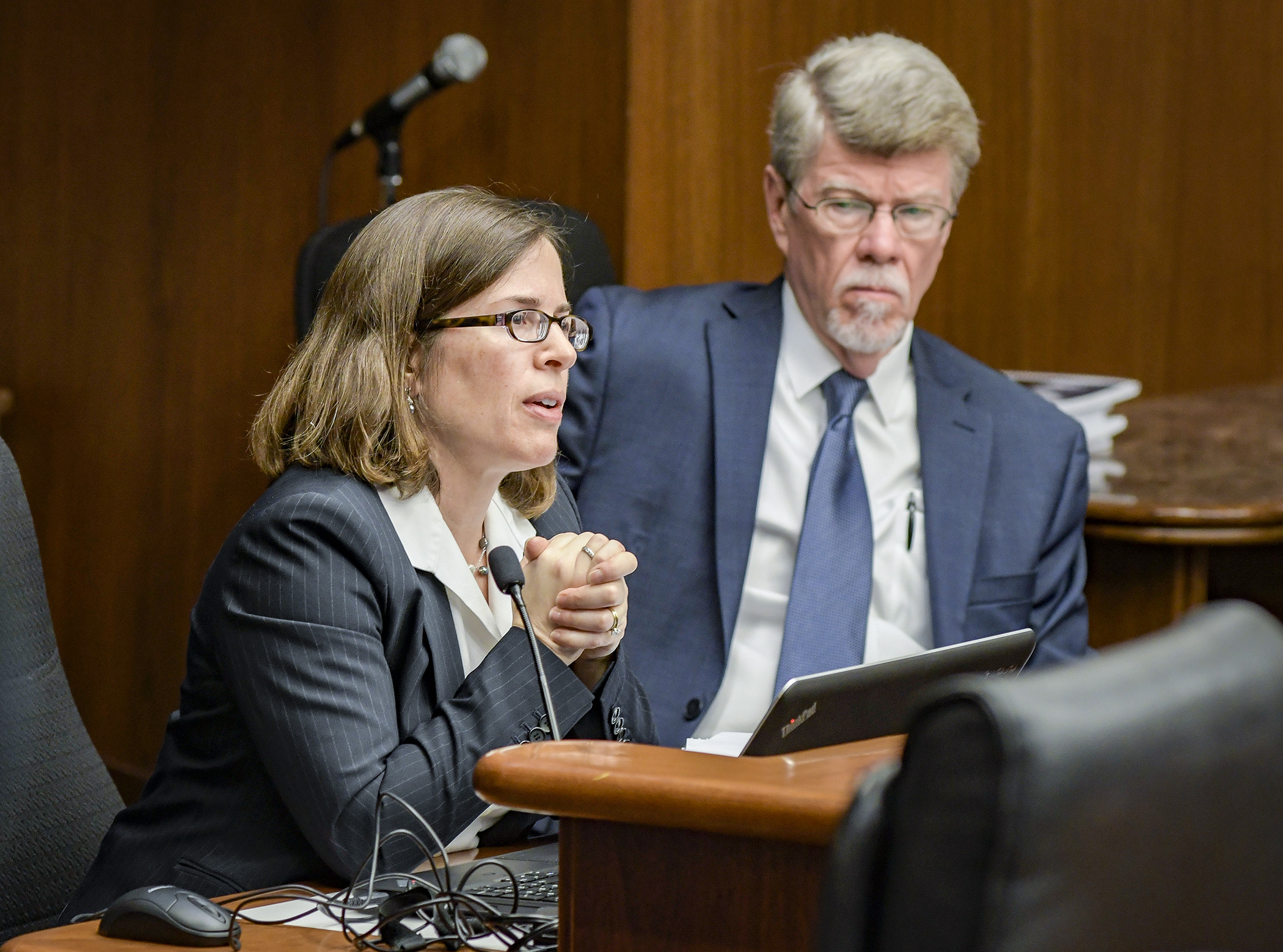Auditor’s report rebukes ‘poorly managed’ nursing home watchdog

The Office of the Legislative Auditor on Tuesday released a biting critique of the agency tasked with monitoring abuse in nursing homes.
The report found that the Department of Health’s Office of Health Facility Complaints failed to protect vulnerable adults in Minnesota. It comes on the heels of a highly publicized scandal in which the office let thousands of mistreatment allegations go uninvestigated.
Appearing before a joint meeting of the House Health and Human Services Reform Committee and the House Subcommittee on Aging and Long-Term Care, Legislative Auditor Jim Nobles said it would take a great deal of time and effort to fix the roots of the problem and the job wasn’t done simply because the backlog itself was eliminated.
“No one should think that the problems at OHFC have been solved,” he said.
Deputy Legislative Auditor Judy Randall, who headed up the investigation, detailed myriad issues at the office that caused the slowdown in casework.
Average completion time was 140 days, more than double the time allowed under state deadlines, Randall pointed out. It usually took more than a month after an allegation for investigators to actually interview the vulnerable adult in question. Policies and procedures often weren’t written down.
There was also an unhealthy amount of office staff turnover, she said. Nearly 50 percent of the staff had been with the office for less than two years. The audit also described inadequate training for new hires.
“I feel like I was set up to fail, and I can never catch up,” an unnamed staffer was quoted as saying in the report.
Confusing state regulations also made it unclear whose jurisdiction a complaint fell under, Randall said.
WATCH Full video of the legislative auditor's presentation
Nursing homes are licensed by the Health Department, which has jurisdiction over complaints from nursing homes. But with “housing with services establishments” — assisted living facilities fall under that category — it’s foggy on who’s in charge of oversight, since the facility could get its license from the Health Department, Department of Human Services, or not have a license at all.
The system is so nebulous that office investigators would sometimes show up at a facility to check out a complaint, spend several hours doing field work, only to find out they never had jurisdiction over that facility in the first place, Randall said.
In some ways, the office contributed to the confusion surrounding complaints.
For example, state privacy law protects the identity of those who report allegations, but office personnel took that to mean the health care facilities are protected, since they’re mandated to report maltreatment issues. So if a vulnerable adult or their family asked the office if a facility reported a particular incident, office staff wouldn’t tell them, the report said.
The audit report recommends the Legislature not only work to fix transparency and oversight at the office but also focus on reforming provider and facility licensing as a whole.
Health Commissioner Jan Malcom called the report “incredibly helpful” and said she supports virtually all of the auditor’s recommendations.
The work already done to eliminate the backlog was “necessary but not sufficient,” Malcom said.
Funding to address the issue may be part of Gov. Mark Dayton’s supplemental budget proposal, she said. The governor plans to release that March 15.
In a press conference following the joint committee meeting, Rep. Debra Kiel (R-Crookston), the subcommittee chair, said she has introduced HF3308 to create several panels to study possible solutions to the crisis, including one to address safety and quality improvement practices and another to help create an assisted-living report card for facilities. Creating a legislative working group was one of the recommendations from the audit.
However, there may not be bills regarding other aspects of the abuse complaint backlog until next year’s legislative session, she said.
Related Articles
Search Session Daily
Advanced Search OptionsPriority Dailies
Ways and Means Committee OKs proposed $512 million supplemental budget on party-line vote
By Mike Cook Meeting more needs or fiscal irresponsibility is one way to sum up the differences among the two parties on a supplemental spending package a year after a $72 billion state budg...
Meeting more needs or fiscal irresponsibility is one way to sum up the differences among the two parties on a supplemental spending package a year after a $72 billion state budg...
Minnesota’s projected budget surplus balloons to $3.7 billion, but fiscal pressure still looms
By Rob Hubbard Just as Minnesota has experienced a warmer winter than usual, so has the state’s budget outlook warmed over the past few months.
On Thursday, Minnesota Management and Budget...
Just as Minnesota has experienced a warmer winter than usual, so has the state’s budget outlook warmed over the past few months.
On Thursday, Minnesota Management and Budget...